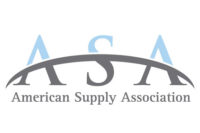
As the new year and a new Congress kicks into high gear, old legislative battles linger. That age-old American tradition of healthy dissention of our elected officials was tragically altered following the shooting of Representative Gabrielle Giffords in Tucson, Arizona. Immediately, calls for a more civil discourse rang out, and there was a renewed realization that in order to work together, we must learn to disagree without being disagreeable.
The 112th Congress ushers in a new era of divided government - one which may be remembered not for its legislative achievements, but its exercise of its oversight responsibilities. As we reflect on one of the more aggressive legislative periods in modern history, the time should come for the Republican House to recognize its limitations with a Democratic majority in the Senate and a President intent on preserving his legislative accomplishments.
The challenge remains for legislators young and old to decide how they intend to use their authority. For every member of Congress who declares it their goal to work with the other side, there will be just as many who view their job as to fight hard for what their constituents sent them to Washington to do. Without question, passion in our debate will remain. It will be up to our elected leaders to find common ground and identify issues that they can work on together.
To be sure, there will be issues that neither side will come to agreement on, but there are others that will leave them with no choice but to find common ground. Some of these pieces of legislation that Congress cannot ignore are the annual appropriation bills, which fund the federal government for the current fiscal year. Currently, the government is operating under a short-term law, known as a Continuing Resolution, which is set to expire on March 4, 2011. Armed with the mandate to dramatically reduce spending, Republicans have openly shown their desire to bring us back to 2008 spending levels. Now comes the difficult task of choosing winners and losers in the budgetary process.
In addition to must-pass funding measures, Congress is also expected to tackle the controversial issue of raising America’s debt ceiling. According to theHeritage Foundation,America’s gross federal debt has reached $14 trillion. Ongoing deficit spending (projected at $1.4 trillion for 2011) means the ceiling of $14.29 trillion will initially be reached by the middle of March. The Treasury Department’s traditional financial toolbox and revenue surges in April and June should delay the final moment of reckoning to May and possibly as late as July(1). Nonetheless, without a statutory increase, America’s credit-worthiness is at risk; this will undoubtedly test new members of Congress who campaigned aggressively on reducing our national debt. Once again, members will be challenged with the need to work together, or to stand fast on their principles.
Across the country, businesses are united behind their opposition to a revenue raiser included in the Affordable Care Act requiring an IRS form 1099 be filed for every transaction above $600. Members of the House and Senate from both sides of the aisle have introduced legislation that would do away with this requirement. However, one major obstacle is that its repeal would erase the $17 billion it was projected to raise in order to help pay for the law. Finding other sources of revenue, other than the painful step of increasing taxes, will be required.
While that and other legislative fixes are addressed, the Department of Health and Human Services will continue implementing this law. As we have learned, the arrival of the new year brought changes in our laws. Those with children can now keep them on your health plans until age 26 and the use of tax-favored health savings accounts now requires a doctor’s prescription. We can no longer purchase items like contact lens solution or cold-and-flu medication over the counter with the convenience of these cards. As President Obama declared during his State of the Union address, he is open to constructive changes in this law, but it remains uncertain where the House and Senate can find common ground.
Other laws passed in the 111th Congress will begin implementation through the rule-making phase by the regulators charged with drafting them. The Wall Street Reform and Consumer Protection Act of 2010, commonly known as Dodd-Frank, will be issuing draft rules as well. According to the U.S. Chamber of Commerce, the 2,300-page bill contains 259 mandated rulemakings, another 188 suggested rulemakings, 63 reports, and 59 studies(2). What concerns many is the possible unintended consequences of this law and the potential increases in the cost of capital, thus stifling growth and a return to prosperity.
What both laws have in common is that to make any substantive changes requires action by Congress. Absent congressional action, the input of stakeholders is critical, like those who provide healthcare or rely on capital markets to make investments. The 259 mandatory rules identified by the Chamber of Commerce should not be written without the input of stakeholders. It is critical for impacted parties to inform the regulators of how these changes will impact their businesses. Like the healthy dissention challenging our members of Congress, our regulatory system also has in place a forum to encourage stakeholders to exercise their views on changes in regulations.
Finally, fixing any number of our long-term issues such as entitlement reform or simplifying the tax code will continue to be areas that can both divide and unite lawmakers. In his State of the Union address, President Obama agreed with millions of business owners that America’s corporate tax rate ranks among the highest in the world and stands in the way of our competitiveness. Along with smart tax reform, there are many issues important to the PHCP and PVF industry which ASA will continue to work towards, such as a reasonable OSHA and the authorization and full funding of WaterSense. In addition, we will continue to oppose repeal of LIFO and strive to preserve a coherent manager-employee relationship by opposing an overly aggressive Department of Labor.
To make these and other changes, however, Americans are expecting Congress to work together to ensure our recovery continues and the tools of our economy are in working order. A robust economy is reliant on free enterprise and the tempered application of our rule of law, but it is also needlessly hindered when these same levers of power work against our interests. Balancing the two is an unending struggle, one that cannot be ignored and demands the participation of every stakeholder.
For more information on ASA’s advocacy efforts and what you can do to promote positive change in Washington, D.C., visit the Advocacy section of www.asa.net or contact Dan Hilton at dhilton@asa.net or 703.328.5234 at ASA’s Washington, D.C., office, or 312.464.0090, ext. 226 at ASA headquarters.
Sources:
(1)The Heritage Foundation - Factsheet #77. The Debt Ceiling: Time, Options, and Action.
January 12, 2011
The Heritage Foundation
(2)Dodd-Frank Unleashes a Tsunami of Regulation: A Visual, by Amanda Engstrom
www.chamberpost.com




